Dragon
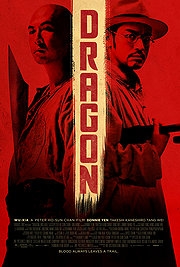
First things first, let’s get the nitty-gritty out of the way. Donnie Yen is Liu Jin-xi, a seemingly mild-mannered paper-maker living with his wife and two sons in Liu Village. When two men attempt to rob the general store and brutalize the family within, he “courageously” intervenes and in the ensuing chaos manages to kill both. Enter Xu Baijiu, the detective charged with clearing the case, who, upon discovering that one of the bandits was a notorious and wanted fugitive, begins to suspect that Liu Jin-xi is not what he claims to be. For the next 45 minutes, we follow Xu Baijiu’s investigation in an elaborate fashion: being personally privy to his every thought and following all his complex reasoning for his sometimes unorthodox methods in establishing evidence. The long-winded probing pays off when he uncovers that Liu Xiang is in fact Tang Long, the second-in-command of the vicious 72 Demons clan – and he’s been missing for 10 years. This, of course, leads to the typical movie cliche where the discovery of your secret by one person undoubtedly leads to whoever you are actually hiding from tracking you down as well. For Liu Jin-xi/Tang Long this is his father, enigmatically referred to as the Master of the 72 Demons, who then immediately dispatches his cohorts to ensure his return by whatever means necessary. The rest of the film unfolds as you would expect it to, with Liu Jian-xi struggling to maintain his peaceful, simple life while keeping his family safe in the face of his past.
For avid fans of Donnie Yen this will be a movie that fiercely departs from the usual. There are a total of 3 fight scenes (not including one re-visualization), which means that the ass-kickery is at its bare minimum. This is a movie that borders on the artsy, attempting to fashion itself as more than just an wild action romp. Through Xu Baijiu’s eyes we are given a break down of the martial arts master: their use of Qi energy and its ability to turn a mere mortal in to something akin to super-human, the precision involved in every movement so as to take the best advantage of an opponents body and so on and so forth. Peter Ho-Sun Chan makes an elaborate show of slowing down the motion mid-fight to capture and illustrate the effect of each punch on the body. It’s hardly a new or even innovative approach, but used as it is, as part of an in-depth clinical investigation, it takes on an added importance and necessity that other examples of the style miss.
The screenplay by Oi Wah Lam is also highly philosophical. Liu Jian-xi is at the center of the debate that considers whether a man can really change who he has been or whether redemption is simply a temporary state before the whiplash of the past finally catches up. With Xu Baijiu we have a character that is grappling with the idea of keeping law and humanity separate, not only as a matter of principal but as a question of is it possible. Most martial arts movies employ at least one of these threads as a jumping point to their story, as a reason for the violence that is to come, but few have wallowed in it to the extent that Dragon does, so much so that it compromises the action and leaves a flat, heavy feeling at the pit of your stomach.
Donnie Yen has long been recognized to be not just a phenomenal action star, but a strong actor in his own right. It comes in handy here where he is required to portray an almost split personality, one of the hapless, some-what comical Liu Jian-xi and the other of the ruthless, precision-killing-machine Tang Long. He hits all the right notes at all important points and makes you really understand the inner workings of the character. Takeshi Kaneshiro as Xu Baijiu does an interesting job with this role, managing to maintain the detective as a floundering but ethical man instead of the typically hard-nosed and unlikeable character you would expect. The rest of the cast are just as good, rising to provide nuanced performances instead of falling back in to the stereotypical norms.
This is a difficult one to peg down. On the one hand I walked away feeling just a little bit cheated out of the complete Donnie Yen experience. I was feeling giddy with the expectancy of incomprehensible stunts and magnificent throw downs to which I could wince and cheer from the safety of my seat. This was not to be, so if that’s what you’re after then I’d give this one a clear miss. And yet, I can’t bring myself to say it’s a waste of time. Leaving the cinema, I found myself feeling somewhat fulfilled. There is a fullness to the story that makes it rather compelling and a depth to the characters that kept me grounded to it. So if you happen to be those rare souls who is looking a little something more then this just might be the ticket.

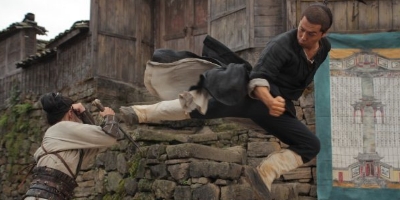
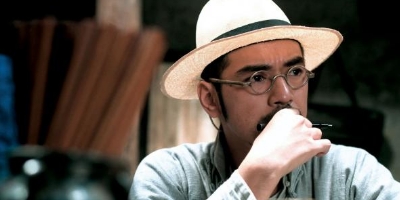
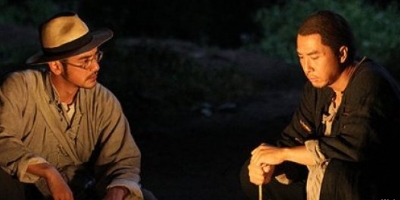

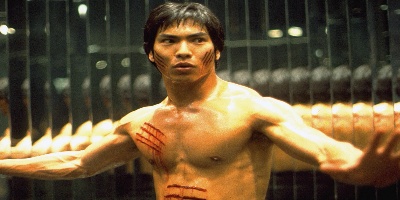
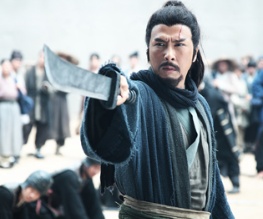
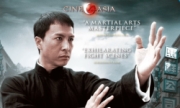
Recent Comments